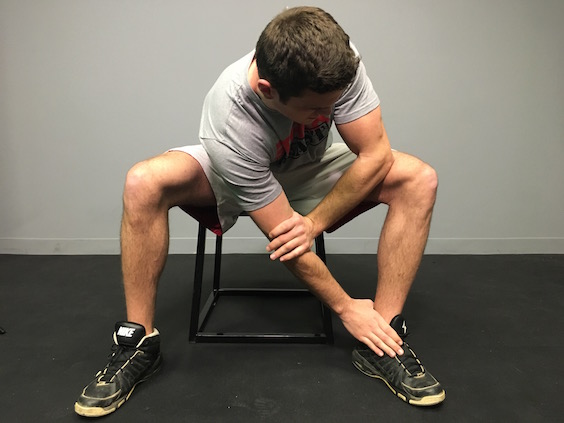How Smoking Ruins Your Sports Performance
At some point, young athletes might think about the consequences of smoking as they see friends lighting up. To some, it appears cool. To others, it is construed as rebellious. Fortunately, smoking prevalence among younger persons has declined significantly in the past 20 years; but there are still young people, including developing athletes, who become casualties to the temptation to smoke.
First, few things are as detrimental to health as tobacco use. Cigarettes have been found to contain many poisonous ingredients, including arsenic and carbon monoxide.
Smoking Literally Saps Exercise Performance
Carbon monoxide, one of the thousands of chemicals present in cigarettes, clamps down on red blood cells, thereby delaying the delivery of oxygen to working muscles. A deficit of oxygen contributes to a greater “oxygen debt” at the onset of exercise, imposing greater demands on the heart to pump oxygenated blood through the body. Smoking has also been shown to trigger immediate ergolyctic effects, as people who engage in a bout of exercise after smoking a cigarette register lower aerobic capacity, lower anaerobic threshold, and significantly higher heart rates. Lifelong smokers have poorer circulation and significantly lower fitness levels than non-smokers. In short, smoking ruins your conditioning.
Smoking doesn’t just inhibit athletic performance. Exposure to cigarette smoke has also caused decrements in academic performance, prompting consideration among many health professionals to limit or outright ban smoking on school grounds and college campuses.
Victor Tringali, Executive Director of Wellness at Drexel University and a staunch advocate of outlawing smoking on college campuses, offers his thoughts. “It’s critical that leaders understand the significance of a healthy environment that supports and encourages the behaviors they are trying to engender among their population,” he said. “Enacting a smoke-free policy is one of the most effective measures an organization can take to affect the health of its constituency. To suggest a student or employee should quit smoking and then provide an environment that presents ample opportunities to fail, undermines both the individual as well as the organization’s entire wellness initiative.”
At present, a consortium of over 300 colleges and universities nationwide, including all but one state-funded school in North Carolina, was able to achieve cleaner air and sidewalks.
Next time you’re thinking of trying a cigarette, consider the work you are putting in to become a better athlete. Is it worth ruining your hard work to smoke something that’s proven to cause cancer and increase your mortality risk? The answer might seem obvious, but it’s up to you to make the correct decision.
RELATED
- How Does Smoking Affect Athletic Performance?
- What Happened When a 300-Pound Chain-Smoker Tried CrossFit
References
- Gardner, A.W. (1996). “The effect of cigarette smoking on exercise capacity in patients with intermittent claudication.” Vascular Medicine, 1, 181-186.
- Hirsch, G.L., Sue, D.Y., Wasserman, K., Robinson, T.E., & Hansen, J.E. (1985). “Immediate effects of cigarette smoking on cardiorespiratory responses to exercise.” Journal of Applied Physiology, 58, 1975-1981.
- Ho, S.Y., Lai, H.K., Wang, M.P., & Lam, T.H. (2010). “Exposure to secondhand smoke and academic performance in non-smoking adolescents.” Journal of Pediatrics, 157, 1012-1017.
- Lee, J.G., Goldstein, A.O., Klein, E.G., Ranney, L.M., & Carver, A.M. (2012). “Assessment of college and university tobacco-free policies in North Carolina.” Journal of American College Health, 60, 512-519.
RECOMMENDED FOR YOU
MOST POPULAR
How Smoking Ruins Your Sports Performance
At some point, young athletes might think about the consequences of smoking as they see friends lighting up. To some, it appears cool. To others, it is construed as rebellious. Fortunately, smoking prevalence among younger persons has declined significantly in the past 20 years; but there are still young people, including developing athletes, who become casualties to the temptation to smoke.
First, few things are as detrimental to health as tobacco use. Cigarettes have been found to contain many poisonous ingredients, including arsenic and carbon monoxide.
Smoking Literally Saps Exercise Performance
Carbon monoxide, one of the thousands of chemicals present in cigarettes, clamps down on red blood cells, thereby delaying the delivery of oxygen to working muscles. A deficit of oxygen contributes to a greater “oxygen debt” at the onset of exercise, imposing greater demands on the heart to pump oxygenated blood through the body. Smoking has also been shown to trigger immediate ergolyctic effects, as people who engage in a bout of exercise after smoking a cigarette register lower aerobic capacity, lower anaerobic threshold, and significantly higher heart rates. Lifelong smokers have poorer circulation and significantly lower fitness levels than non-smokers. In short, smoking ruins your conditioning.
Smoking doesn’t just inhibit athletic performance. Exposure to cigarette smoke has also caused decrements in academic performance, prompting consideration among many health professionals to limit or outright ban smoking on school grounds and college campuses.
Victor Tringali, Executive Director of Wellness at Drexel University and a staunch advocate of outlawing smoking on college campuses, offers his thoughts. “It’s critical that leaders understand the significance of a healthy environment that supports and encourages the behaviors they are trying to engender among their population,” he said. “Enacting a smoke-free policy is one of the most effective measures an organization can take to affect the health of its constituency. To suggest a student or employee should quit smoking and then provide an environment that presents ample opportunities to fail, undermines both the individual as well as the organization’s entire wellness initiative.”
At present, a consortium of over 300 colleges and universities nationwide, including all but one state-funded school in North Carolina, was able to achieve cleaner air and sidewalks.
Next time you’re thinking of trying a cigarette, consider the work you are putting in to become a better athlete. Is it worth ruining your hard work to smoke something that’s proven to cause cancer and increase your mortality risk? The answer might seem obvious, but it’s up to you to make the correct decision.
RELATED
- How Does Smoking Affect Athletic Performance?
- What Happened When a 300-Pound Chain-Smoker Tried CrossFit
References
- Gardner, A.W. (1996). “The effect of cigarette smoking on exercise capacity in patients with intermittent claudication.” Vascular Medicine, 1, 181-186.
- Hirsch, G.L., Sue, D.Y., Wasserman, K., Robinson, T.E., & Hansen, J.E. (1985). “Immediate effects of cigarette smoking on cardiorespiratory responses to exercise.” Journal of Applied Physiology, 58, 1975-1981.
- Ho, S.Y., Lai, H.K., Wang, M.P., & Lam, T.H. (2010). “Exposure to secondhand smoke and academic performance in non-smoking adolescents.” Journal of Pediatrics, 157, 1012-1017.
- Lee, J.G., Goldstein, A.O., Klein, E.G., Ranney, L.M., & Carver, A.M. (2012). “Assessment of college and university tobacco-free policies in North Carolina.” Journal of American College Health, 60, 512-519.










